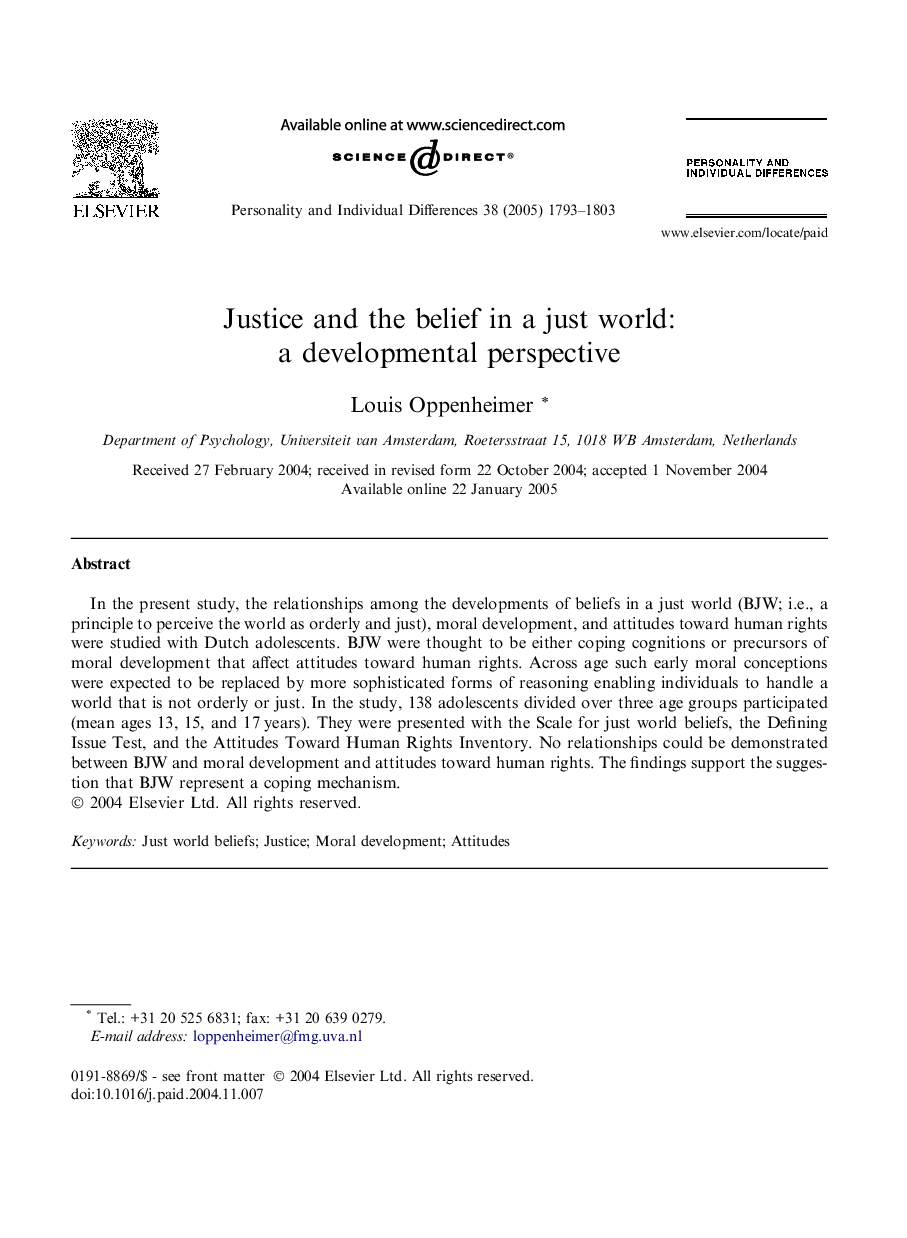| Article ID | Journal | Published Year | Pages | File Type |
|---|---|---|---|---|
| 10440659 | Personality and Individual Differences | 2005 | 11 Pages |
Abstract
In the present study, the relationships among the developments of beliefs in a just world (BJW; i.e., a principle to perceive the world as orderly and just), moral development, and attitudes toward human rights were studied with Dutch adolescents. BJW were thought to be either coping cognitions or precursors of moral development that affect attitudes toward human rights. Across age such early moral conceptions were expected to be replaced by more sophisticated forms of reasoning enabling individuals to handle a world that is not orderly or just. In the study, 138 adolescents divided over three age groups participated (mean ages 13, 15, and 17Â years). They were presented with the Scale for just world beliefs, the Defining Issue Test, and the Attitudes Toward Human Rights Inventory. No relationships could be demonstrated between BJW and moral development and attitudes toward human rights. The findings support the suggestion that BJW represent a coping mechanism.
Related Topics
Life Sciences
Neuroscience
Behavioral Neuroscience
Authors
Louis Oppenheimer,
